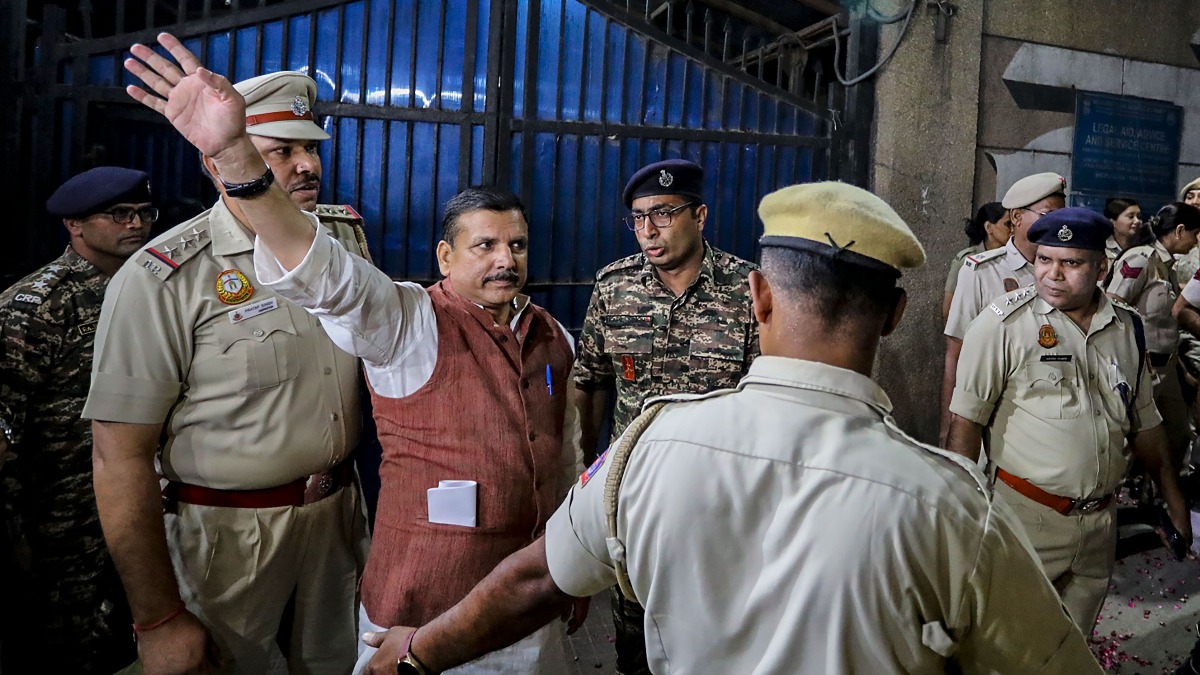AAP Rajya Sabha MP Sanjay Singh has finally walked free from jail. On Tuesday, the Supreme Court granted him bail, and by Wednesday, his release was executed. The Rouse Avenue Court set the terms of bail following the apex court's order.
Sanjay Singh is not permitted to leave the Delhi-NCR region. If he needs to, he must report his whereabouts. Moreover, he's been asked to surrender his passport. Critically, while out on bail, Singh is not allowed to comment on or make any statements regarding his case.
On October 4 last year, the Enforcement Directorate (ED) arrested Singh as part of an investigation linked to an alleged liquor scam in Delhi. He was accused of money laundering and has been incarcerated ever since, up until these past six months.
Sanjay Singh's bail comes at a time when AAP's chief and Delhi's CM, Arvind Kejriwal, has also been jailed in the same case, arrested by the ED on March 21st.
During the bail hearing in the Supreme Court, the ED did not object to Singh's release. The ED plainly expressed that it had no opposition to granting him bail.
How did Sanjay Singh secure bail?
A Supreme Court bench comprised of Justices Sanjeev Khanna, Justice Dipankar Datta, and Justice P.B. Pardiwala oversaw the bail petition.
In the proceedings, the bench informed ASG S.V. Raju, representing the ED, that no money had been recovered from Singh. Furthermore, the alleged ₹2 crore bribery accusation was stated to be a matter for trial proceedings.
The court highlighted that to grant bail on merit under Section 45 of the Prevention of Money Laundering Act (PMLA), it must be preliminarily proven that the defendant has not committed any crime. This could potentially impact the ongoing trial.
The court then inquired if the ED required Singh’s continued custody, to which ASG S.V. Raju responded affirmatively, stating that the agency had no objections to Singh being granted bail.
The court's written order also stressed that Singh's bail relief should not be viewed as a precedent, clearly stating that the relief granted cannot be claimed by another accused based on this case.
But, what is Section 45?
The linchpin for Sanjay Singh's bail lies within Section 45 of the PMLA. This specific section places two conditions for bail regarding money laundering charges.
The first condition is a preliminary assessment that the accused has not committed a crime and will not engage in criminal activities if released on bail.
Secondly, the court must allow the public prosecutor to oppose the bail application before granting release to the defendant.
This is why the Supreme Court asked the ED prior to granting bail if Singh's custody was necessary.
Will this lead to relief for other leaders?
Following Singh's bail, speculation arose regarding potential relief for others incarcerated in the same alleged Delhi liquor scam, including AAP leader CM Arvind Kejriwal and other politicians. However, the likelihood remains slim.
The Supreme Court had specifically asked the ED about its position on Singh's bail. When no objection was raised, the bench declared that ASG Raju had indicated no objection to Singh's release on bail, facilitating his release pending trial.
However, the court unequivocally announced that Sanjay Singh's bail relief should not serve as a 'precedent', which means that the order is unlikely to provide much assistance to the other incarcerated leaders, including CM Arvind Kejriwal.




